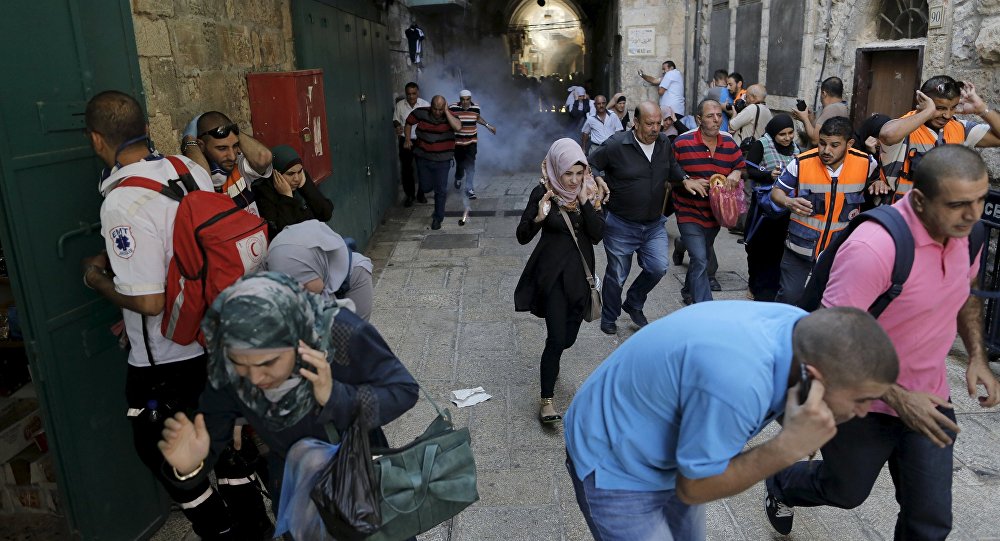
A woman reporting for the Lebanese TV channel Al-Mayadeen was shot in the face and wounded by Israeli forces while reporting from an Arab neighborhood in Jerusalem.
A stun grenade shot by Israeli troops hit Hana Mahamid in the face while she was reporting live from al-Issawiya on Sunday, where clashes between local Arab residents and Israel’s law enforcement have been taking place.
The journalist, who was reporting for the Lebanese TV channel Al-Mayadeen, was wearing a blue flak jacket with a sign marked ‘PRESS’ attached to it. According to Ma’an News Agency, "In a video of the incident, the reporter suddenly stops talking during a live report and begins screaming after being hit in the face with a canister."
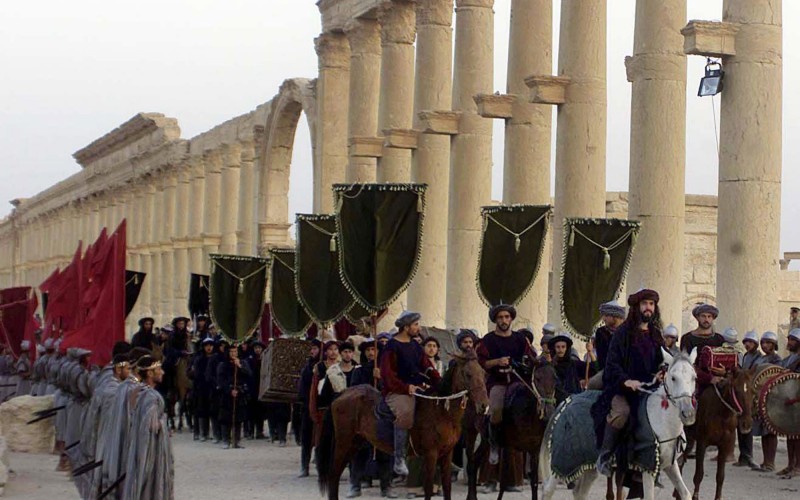
ISIS militants have blown up the 2,000 year triumphal arch in Palmyra, it has been reported.
The latest act of destruction was reported by Syria’s head of antiquities, Maamun Abdulkarim, who reported that the terror group had detonated a bomb they had laid several weeks ago.
“We have received news from the site that the Arch of Triumph was destroyed yesterday (Sunday). ISIS booby-trapped it several weeks ago,” antiquities director Maamun Abdulkarim told AFP.
ISIS has already destroyed the shrine of Baal Shamin and the 2,000-year-old Temple of Bel. The group also murdered the city’s 82-year-old former antiquities chief.
BEIRUT (Reuters) – A bomb went off in Lebanon on Monday targeting a minibus transporting passengers to Syria, and a second explosive device was found near a Lebanese customs office at the Syrian-Lebanese border and defused, a security source said. There were no casualties from the roadside explosion near the bus in the town of […]
Reuters

BEIRUT, Oct 5 (Reuters) – Rival Lebanese lawmakers nearly came to blows on live TV on Monday, shoving and shouting at each other in a vivid illustration of political conflict that is paralysing decision-making and fuelling public discontent.
After arguing for several minutes at a parliamentary committee on public works and energy, one MP threw a water bottle, before scuffling with another. The fight was quickly broken up and the meeting abandoned.
Monday’s altercation began when MP Ziad Aswad, a member of Christian politician Michel Aoun’s Free Patriotic Movement, objected to corruption allegations raised against the minister of energy – who belongs to his political bloc – by a member of a rival alliance led by Sunni politician Saad al-Hariri.
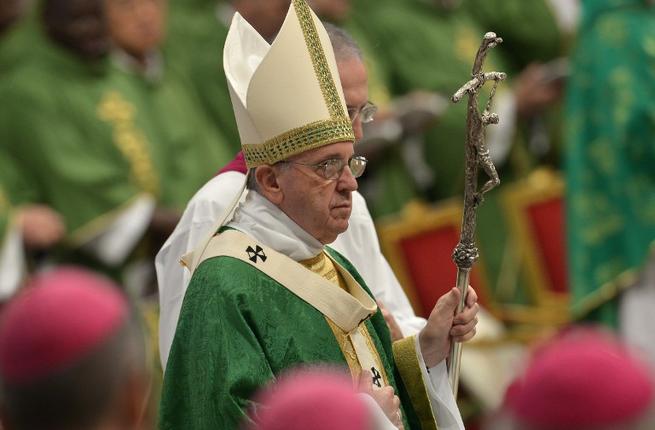
Pope Francis has reportedly sent a letter to Christian Lebanese leaders appealing for unity to elect a new president and fill the vacuum at Baabda Palace.
As Safir daily on Monday quoted high-ranking sources as saying that the pope sent the letter to the unidentified Maronite officials around ten days ago.
He asked them to “unite for the sake of electing a Lebanese president,” said the sources.
As Safir also quoted high-ranking French diplomatic sources as saying that President Francois Hollande’s visit to Beirut, which was scheduled to take place in October, has been postponed indefinitely.
Azza El Masri – Buzzfeed In the Arab world, traditions and customs have taught us that young people have a responsibility to get married as soon as possible in order to fulfil their responsibility in contributing to society through childbirth and rearing. This prospect for many millennials has become daunting, especially due to economic hardship. […]
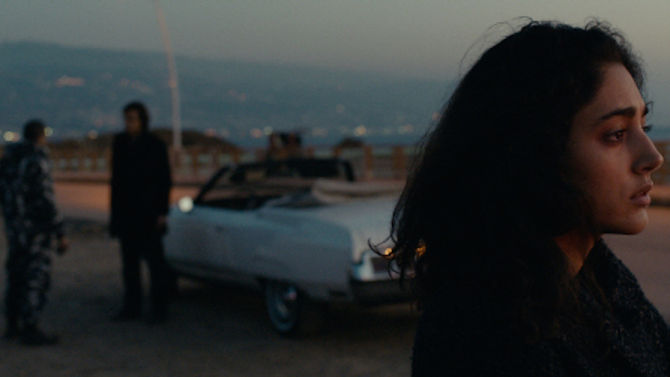
Lebanese director Jihane Chouaib’s half-personal, half-fictionalized debut stumbles as it tries to manufacture mystery where emotion belongs.
“Go Home,” reads the angry grease-paint message scrawled on the wall of the now-ransacked villa Nada (Golshifteh Farahani) finds upon her return to the Lebanese village where she grew up. Alas, Nada can’t really go home, not now, not ever, in Jihane Chouaib’s slow and overly obvious account of this now-Westernized young woman’s attempts to put certain family secrets to rest. As three distractingly gorgeous actors mope about its otherwise-grubby Lebanon locations, this trilingual yet not especially talky debut (whose cast speaks French, English and Arabic) seeks profundity in introspective silences. For some it may well achieve that, though technically speaking, it’s a shame everything hinges on a childhood memory that, once fully revealed, isn’t nearly as shocking for us as it must be for Nada, ultimately eliciting respect but not much excitement as it travels fest and arthouse venues far from home.
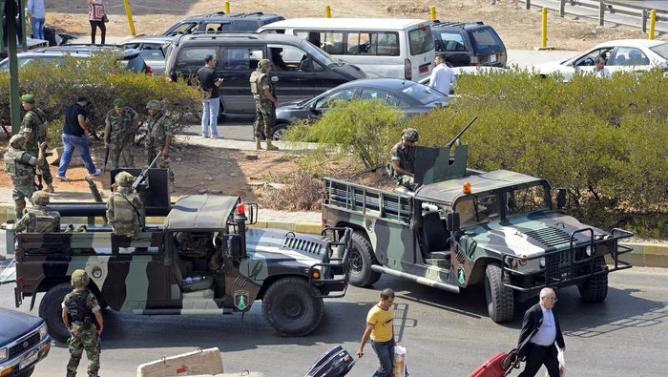
By Nicholas Blanford
A huge roar erupted from the 100,000 cheering Hezbollah supporters as the Shiite organization’s beaming leader, Sheikh Hassan Nasrallah, dressed in a customary brown cloak and black turban, stepped onto a stage decorated in the red, white, and green Lebanese national flag and yellow party banners.
It was May 26, 2000, and Sheikh Nasrallah was in the southern Lebanese town of Bint Jbeil, a few miles north of the Israeli border, to mark a stunning and unprecedented military achievement. His group of several hundred lightly armed resistance fighters had pushed the Israeli army out of south Lebanon, ending an occupation that had begun 22 years earlier.
The last Israeli troops had left their posts in south Lebanon just two days before.
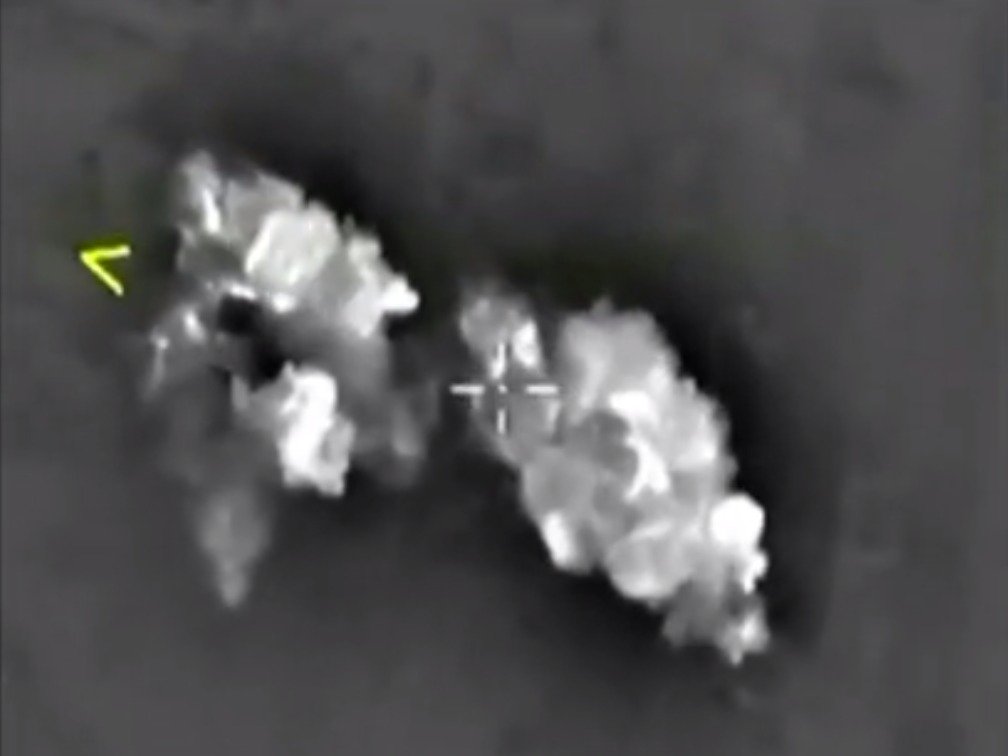
On September 30, the long-expected Russian military intervention in Syria rolled into action.
According to Russia’s Ministry of Defense, more than 50 airplanes and helicopters took part in a first wave of strikes against anti-Assad insurgents.
Russia’s TASS news agency quoted Major-General Igor Konashenkov’s announcement:
In accordance with a decision by the Supreme Commander-in-Chief Vladimir Putin Russian Aerospace Forces planes on Wednesday started an operation to deal pinpoint strikes against ground targets of the [Islamic State] terrorist group in the territory of the Syrian Arab Republic.
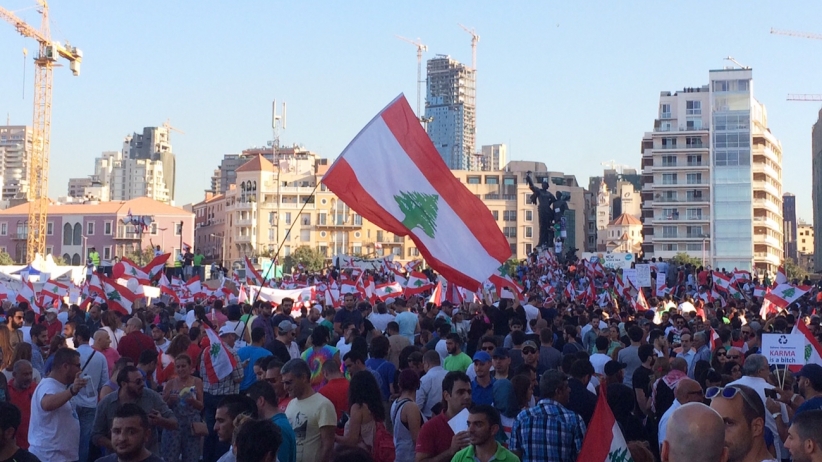
Lebanon is a country that faces a plethora of problems, from the lack of 24-hour electricity and decent infrastructure, to the ongoing refugee crisis to a parliament that’s extended its term twice and no president in office. One would think that an uprising to sort out the country’s many social, political, and economic problems has been overdue for years. That said, a problem that impacted the vast majority of Lebanese, irrespective of their sect, political ideology, or socioeconomic class sparked the “You Stink” protests: garbage. Beirut’s waste management has been handled by Sukleen, a private corporation, for almost two decades. The way they landed that huge responsibility was iffy to say the least. Waste management is a municipal responsibility; however, that portion of funds was taken and given to Sukleen. What was a bottom-up decision became top-down. Moreover, Sukleen’s plan is relatively financially inefficient. The amount of money it requires to treat a ton of solid waste (per ton) is higher than that of many other countries. Politicians from across the political spectrum have also accused of it being corrupt, some even referring to it as “mafia-like.” One of the accusations? That Sukleen sells recyclables for extra revenue.



